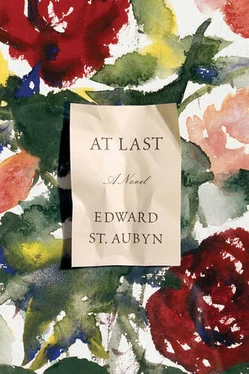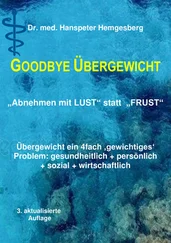‘You couldn’t drop me off on the way, could you?’ Kettle asked Nancy.
‘It’s Nicholas’s private car, dear, not a limo service,’ said Nancy, appalled by the indecency of the suggestion. ‘It’s really too upsetting when he’s so ill.’
Nancy kissed Patrick and Mary goodbye and hurried away.
‘It’s St Thomas’ Hospital, by the way,’ Patrick called after her. ‘The ambulance man told me it’s the best place for “clot-busters”.’
‘Has he had a stroke?’ asked Nancy.
‘Heart attack, they could tell from the cold nose — the extremities go cold.’
‘Oh, don’t,’ said Nancy, ‘I can’t bear to think about it.’
She set off down the stairs with no time to waste: Cynthia had made her an appointment at the hairdresser’s using the magic words, ‘charge it to me’.
When Nancy had left, Henry offered the aggrieved Kettle a lift. After only a few minutes of complaint about the rudeness of Patrick’s aunt, she accepted, and said goodbye to Mary and the children. Henry promised to call Patrick the next day, and accompanied Kettle downstairs. To their surprise they found Nancy still standing on the pavement outside the club.
‘Oh, Cabbage,’ she said with a wail of childish frustration, ‘Nicholas’s car has gone.’
‘You can come with us,’ said Henry simply.
Kettle and Nancy sat in the back of the car in hostile silence. Up in front Henry told the driver to go to Princes Gate first, then on to St Thomas’ Hospital and finally back to the hotel. Nancy suddenly realized what she had done by accepting a ride. She had forgotten about Nicholas altogether. Now she was going to have to borrow money from Henry to catch a taxi back to the hairdresser’s from some godforsaken hospital in the middle of nowhere. It was enough to make you scream.
Nicholas’s fall, the commotion that followed, the arrival of the ambulance men and the dispersal of some of the guests had all eluded Erasmus’s attention. When Fleur had burst into song in the middle of her conversation with Nicholas, the words ‘re-clothe us in our rightful minds’ sent a little shock through him, like a piercing dog whistle, inaudible to the others but pitched perfectly for his own preoccupations, it recalled him to his true master, insisting that he leave the muddy fields of inter-subjectivity and the intriguing traces of other minds for the cool ledge of the balcony where he might be allowed, for a few moments, to think about thinking. Social life had a tendency to press him up against his basic rejection of the proposition that an individual identity was defined by turning experience into an ever more patterned and coherent story. It was in reflection and not in narrative that he found authenticity. The pressure to render his past in anecdote, or indeed to imagine the future in terms of passionate aspirations, made him feel clumsy and false. He knew that his inability to be excited by the memory of his first day at school, or to project a cumulative and increasingly solid self that wanted to learn the harpsichord, or longed to live in the Chilterns, or hoped to see Christ’s blood streaming in the firmament, made his personality seem unreal to other people, but it was precisely the unreality of the personality that was so clear to him. His authentic self was the attentive witness to a variety of inconstant impressions that could not, in themselves, enhance or detract from his sense of identity.
Not only did he have an ontological problem with the generally unquestioned narrative assumptions of ordinary social life but he also, at this particular party, found himself questioning the ethical assumption, shared by everyone except Annette (and not shared by Annette for reasons that were in themselves problematic), that Eleanor Melrose had been wrong to disinherit her son. Setting aside for a moment the difficulties of judging the usefulness of the Foundation she had endowed, there was an undeniable potential Utilitarian merit to the wider distribution of her resources. Mrs Melrose might at least count on John Stuart Mill and Jeremy Bentham and Peter Singer and R. M. Hare to look sympathetically on her case. If a thousand people, over the years, emerged from the Foundation having discovered, by whatever esoteric means, a sense of purpose that made them into more altruistic and conscientious citizens, would the benefit to society not outweigh the distress caused to a family of four people (with one barely conscious of the loss) who had expected to own a house and turned out not to? In the maelstrom of perspectives could a sound moral judgment be made from any other point of view but that of the strictest impartiality? Whether such a point of view could ever be established was another question to which the answer was almost certainly negative. Nevertheless, even if Utilitarian arithmetic, based on the notion of an unobtainable impartiality, were set aside on the grounds that motivation was desire-based, as Hume had argued, the autonomy of an individual’s preferences for one kind of good over another still offered a strong ethical case for Eleanor’s philanthropic choice.
There had been a widespread sense of relief when Fleur accompanied Nicholas’s stretcher downstairs and appeared to have left the party, but ten minutes later she reappeared resolutely in the doorway. Seeing Erasmus leaning on the balustrade staring pensively down at the gravel path, she immediately expressed her alarm to Patrick.
‘What’s that man doing on the balcony?’ she asked sharply, like a nanny who despairs of leaving the nursery for even a few minutes. ‘Is he going to jump?’
‘I don’t think he was planning to,’ said Patrick, ‘but I’m sure you could persuade him.’
‘The last thing we need is another death on our hands,’ said Fleur.
‘I’ll go and check,’ said Robert.
‘Me too,’ said Thomas, dashing through the French windows.
‘You mustn’t jump,’ he explained, ‘because the last thing we need is another death on our hands.’
‘I wasn’t thinking of jumping,’ said Erasmus.
‘What were you thinking about?’ asked Robert.
‘Whether doing some good to a lot of people is better than doing a lot of good to a few,’ Erasmus replied.
‘The needs of the many outweigh the needs of the few, or the one,’ said Robert solemnly, making a strange gesture with his right hand.
Thomas, recognizing the allusion to the Vulcan logic of Star Trek II , made the same gesture with his hand.
‘Live long and prosper,’ he said, smiling uncontrollably at the thought of growing pointed ears.
Fleur strode onto the balcony and addressed Erasmus without any trivial preliminaries.
‘Have you tried Amitriptyline?’ she asked.
‘I’ve never heard of him,’ said Erasmus. ‘What’s he written?’
Fleur realized that Erasmus was much more confused than she had originally imagined.
‘You’d better come inside,’ she said coaxingly.
Glancing into the room Erasmus noticed that the majority of the guests had left and assumed that Fleur was hinting tactfully that he should be on his way.
‘Yes, you’re probably right,’ said Erasmus.
Fleur reflected that she had a real talent for dealing with people in extreme mental states and that she should probably be put in charge of the depression wing of a psychiatric hospital, or indeed of a national policy unit.
As he went indoors, Erasmus decided not to get entangled in more incoherent social life, but simply to say goodbye to Mary and then leave immediately. As he leant over to kiss her, he wondered if a person of the predominantly narrative type would desire Mary because he had desired her in the past, and whether he would be imagining that fragment of the past being transported, as it were, in a time machine to the present moment. This fantasy reminded him of Wittgenstein’s seminal remark that ‘nothing is more important in teaching us to understand the concepts we have than constructing fictitious ones’. In his own case, his desire, such as it was, had the character of an inconsequential present-tense fact, like the scent of a flower.
Читать дальше












